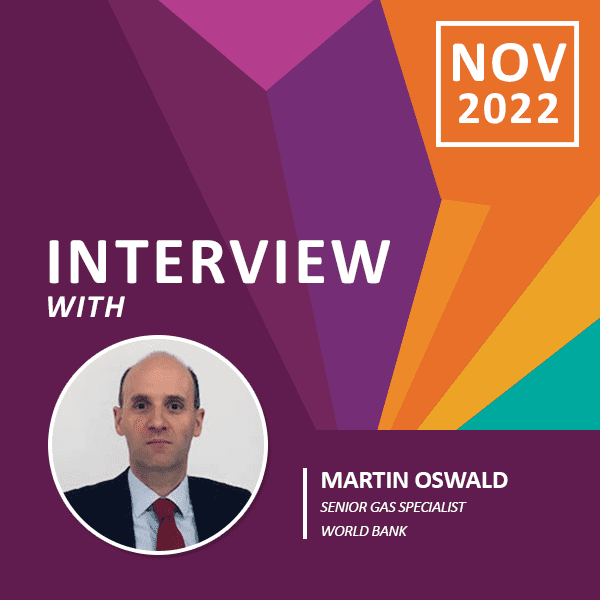Many countries are now prioritising gas development for both domestic use and for export, can you share with us what efforts WBG is making to assist member countries?
- The Bank’s Climate Change Action Plan states that the Bank may support natural gas for projects where
-
- there are urgent energy demands and no short-term renewable alternatives,
- it is consistent with a country’s national strategies, and
- it does not lead to long-term carbon emissions lock-in.
- Whenever the World Bank is considering natural gas lending, in-depth country and sector analyses are considered to ensure that projects are aligned with the Paris Agreement.
- Depending on country’s circumstance, natural gas may be useful in accelerating a transition away from coal, as well as enhancing power supply reliability and grid stability that facilitates a higher rate of renewables integration.
- In exceptional circumstances, consideration will be given to financing upstream gas in the poorest countries where there is a clear benefit in terms of energy access for the poor, and the project fits within the countries’ Paris Agreement commitments.
- In the case of gas flaring and venting reduction efforts, we consider this a mid and downstream activity, which is why last year IFC provided a landmark loan to reduce gas flaring, boost energy access, and power more homes and businesses across Iraq.
- The World Bank Group will continue to support and finance midstream and downstream natural gas investments for transport and distribution to consumers and for power generation. In some countries, natural gas still plays an important role during the energy transition. Gas has the lowest CO2 emissions of any fossil fuel. We support natural gas as a flexible energy source that can help countries make the transition more quickly to renewables, expand access to energy for the poor, and displace carbon-intensive coal.
You are speaking at the 5th edition of the Congo international Energy conference, in addition to sharing your expertise with various stakeholders, what are you hoping to learn from the conference?
The Congo international Energy Conference is a unique opportunity for us to engage with several key regional stakeholders from the public and private sectors. We look forward to gaining insights on current and upcoming oil and gas developments, in particular those including decarbonization of the production process and in areas such as access to energy.

